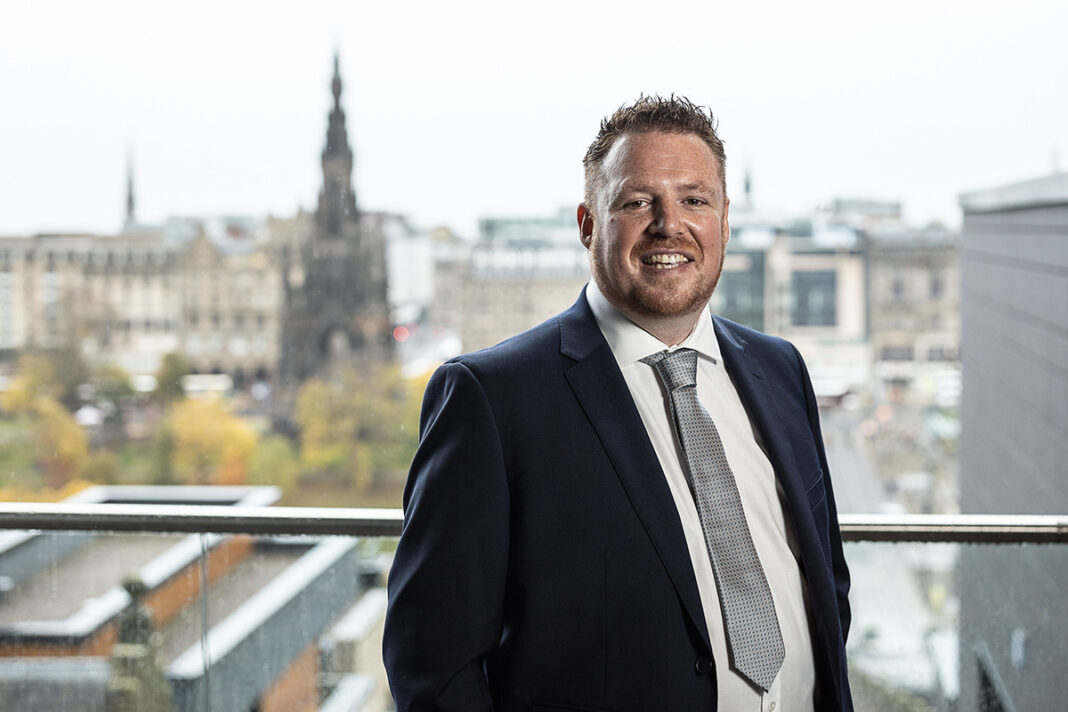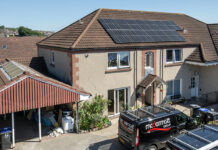
By MJ O’Shaughnessy, managing director, Will Rudd (Glasgow)
WITH a year to go until Glasgow hosts COP26 Climate Summit, engineering probably isn’t the first thing that springs to mind when considering how we tackle climate change. Yet the built environment where we all live, learn, work and play has been engineered. The question now, as we work towards meeting ambitious net-zero carbon targets, is how do we build, protect, preserve and enhance our landscapes in a sustainable way.
This is not a new question for Will Rudd as we have been considering this challenge for some time now, and in fact we made blue-green engineering a core principle of the Will Rudd approach to design five years ago.
When I started at the firm’s Glasgow office twelve years ago, there were six of us, and today we are a team of 41. We have completely diversified our portfolio of services and the design and engineering solutions have continued to evolve. This is evident in our range of in-house specialisms which empower us to adapt and create responsible environmental solutions which has been key to our continued success and growth of the business. The energy market is a very strong sector for us, whether that’s the £500m energy from waste facilities we are working on or the numerous wind farm projects we are currently delivering.
Like every organisation, we have weathered storms but it has been our progressive, pioneering spirit, coupled with our drive and commitment to do the right thing, that led us to push the boundaries and throw away the traditional rulebooks. Like moving away from the assumption that drainage must be hidden and underground.
Instead we are working with the landscape to determine how we can develop above ground solutions that naturally interact with it to take care of the drainage and flood risk, assessing the geology, energy and hydrology of the area and create a living habitat for us and wildlife alike. Like a recent project we worked on where the drainage solution works with the woodland around it, or in planted swales and communal ponds. Delivering sustainable urban drainage systems (SUDS) serve to capture carbon as well as reduce flood risk.
How we improve urban areas too can hugely benefit society and this is a key focus for cities across the UK and Ireland. With demand for housing increasing and a shortage of suitable land, developers are increasingly looking to mixed-use developments where residents can enjoy high-quality living spaces. This is particularly prominent in London where we have worked on tall buildings, up to 36 storeys. Instead of exploiting every square metre of space for building, we are working collaboratively with architects, landscape architects, planners, developers and contractors to create environments that maximise opportunities for green spaces, both through the preservation of the surrounding areas, and in the creation of new spaces integrated in the fabric of the building, like community roof gardens. These enhanced spaces for social and recreation activities have been proven to deliver health benefits as well as reducing the impact on the environment and are engineered to be resilient to changing climates.
Our blue-green approach to engineering and infrastructure delivers sustainable solutions across a variety of sectors; hospitality, residential, renewable energy, education, marine, public and private sectors. Working on projects big and small, an enormous amount of collaboration ensures we support clients as they too consider their role and contribution to reducing their carbon footprint.
The collective mission of the 80-strong team of experts working across the Will Rudd Glasgow and Edinburgh offices is to fulfil our duty to support the creation of positive sustainable environments that we and future generations can benefit from. We think about our children when we’re working on projects, and the legacy we will leave behind for them. It is important to us that we play our part in delivering a built environment where people can thrive, and knowing we make a positive contribution to protecting our planet.








